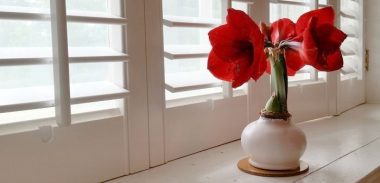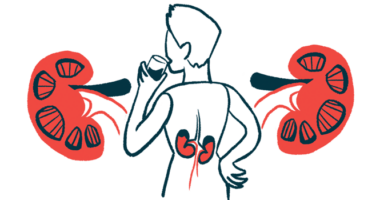Appreciating Our Still Life With Houseplants

A brown masonry wall jutted out at a 90-degree angle just past the window in our hospital room. From his bedridden perspective, it was all my husband could see when he looked out. His days were measured by watching light bricks fade to dark. He noted with mild interest when rain soaked them and broke the monotony. It was a dreary existence for this stained glass artist who had filled hundreds of windows with vibrant hues.
“Could you find a plant to put on the sill?” he asked. “Maybe one that would flower?”
The last leaf
I recalled O. Henry’s classic story, “The Last Leaf,” in which a desperately ill woman fixates on a tree outside her window, believing she will die when the last leaf falls. This did not bode well for my beloved, as I have a tendency to kill houseplants.
Anxiously, I set out on my mission of mercy, in search of a beautiful and robust plant at the florist’s shop in the lobby. I found something small and lush, with what looked like little buds, just waiting to burst forth with a life force to fill the room. Perfect. Until the clerk asked what floor I intended to take it to.
“Sorry, no plants allowed in critical care,” she said.
I was relieved that my poor horticultural skills would not be put to the ultimate test. But when I returned empty-handed, I could see my patient’s disappointment.
Nature and nurture
I have always thought of houseplants as a responsibility and a bit of a bother. Cut flowers were more to my liking: gorgeous today, gone tomorrow, treat myself to a new bouquet next week. Besides, we wipe the dirt from our shoes when we enter the house. Why would I place pots full of it around my home?
It was in my husband’s early convalescence that I came to appreciate the healing power of plants. Not in an aloe vera, herbal remedy sort of way, but as consistent companions in our slower and sometimes still life. They are determined little reminders of nature’s inclination toward life, growth, and renewal. Plants lean into the light, soak up nourishment, wilt when neglected, and rebound when tended to. They persevere — quietly and in place — and encourage us to do the same.
Since his diagnosis of aHUS and its accompanying limitations, my husband has taken more interest and pleasure in tending to his plants. He has a jade plant and a poinsettia that have endured since before his hospitalization. His small crop of tomatoes is sprouting in a potted garden just outside the kitchen door and provides a proud garnish to our suppers. And he surprises me with disposable cuttings from the rose bushes, which bloom briefly in a bud vase on the counter. These are all beautiful symbols that we are still living a good and connected life.

A waxed amaryllis on the windowsill at home. (Photo by Annie Dixon)
My spirit flower
Fortunately, I am a better caregiver than caretaker, as evidenced by the longevity of my patient versus that of my plants. Recently, I have found the perfect houseplant for my temperament and abilities: a waxed amaryllis.
It is simply a bulb coated in wax, which conserves moisture and thus requires no dirt or water. Just park it near a window and turn it occasionally so it grows straight. That’s it. No fuss, no muss, just four gorgeous red trumpets bursting with life on our windowsill at home. It lasts longer than cut flowers, with less care and no commitment, leaving me to focus on the true gardener in the family, while he tends to the other houseplants.
***
Note: aHUS News is strictly a news and information website about the disease. It does not provide medical advice, diagnosis, or treatment. This content is not intended to be a substitute for professional medical advice, diagnosis, or treatment. Always seek the advice of your physician or other qualified health provider with any questions you may have regarding a medical condition. Never disregard professional medical advice or delay in seeking it because of something you have read on this website. The opinions expressed in this column are not those of aHUS News or its parent company, BioNews, and are intended to spark discussion about issues pertaining to aHUS.







Comments